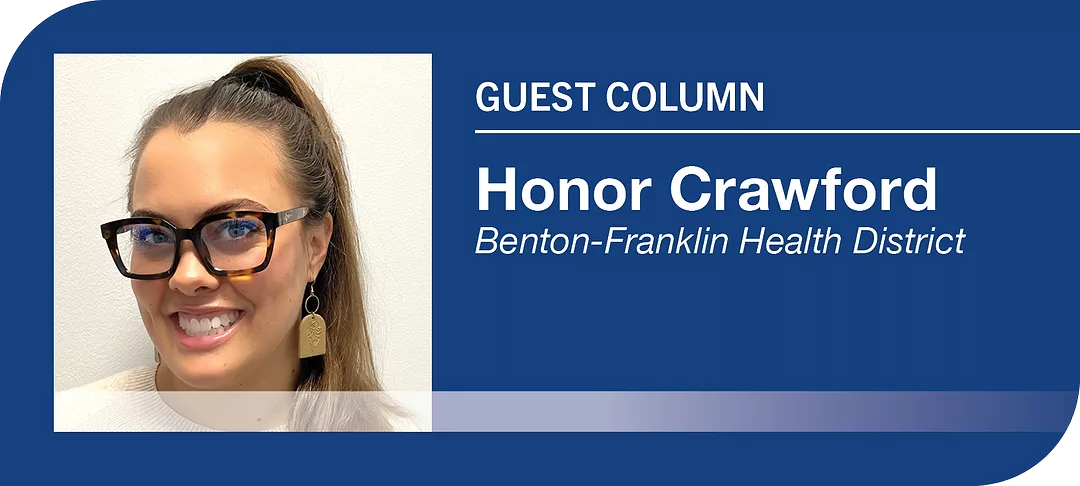
Home » Businesses can do their part to help promote community health
Businesses can do their part to help promote community health

October 11, 2023
In recent years, the concept of corporate social responsibility has gained considerable attention among businesses as organizations recognize their role in contributing to the well-being of the communities in which they operate. The Covid-19 pandemic emphasized the fundamental relationship between public health and economic welfare.
The relationship between business and health is a complex and interconnected one, with each having a significant impact on the other.
On the one hand, businesses have the power to influence the health and well-being of individuals and communities through their practices, products and policies. For example, businesses that provide access to affordable health care benefits and promote workplace wellness programs can positively impact their employees’ physical and mental health.
Conversely, the health of individuals and communities affects businesses.
A healthy population means a productive workforce, reduced health care costs and a more stable consumer base. Additionally, businesses can be affected by public health issues such as disease outbreaks or climate effects, such as wildfire smoke or extreme heat, which can disrupt operations and impact financial performance.
That’s why businesses must recognize their role in promoting and supporting health while also considering the potential health impacts of their operations and decisions.
By fostering a mutually beneficial relationship between business and health, both can thrive and contribute to our community’s overall well-being.
For this reason, the private and business sectors are essential in improving community health.
The Benton-Franklin Health District, in partnership with Kadlec, Benton-Franklin Community Health Alliance and Prosser Memorial Health, completed a Community Health Needs Assessment (CHNA), a comprehensive, data-driven report developed from stakeholder interviews, forums and surveys over nine months to better understand the community’s health needs and challenges.
A wide array of community members, including business professionals, had a say in the process. The findings are used to prioritize needs and inform a Community Health Improvement Plan (CHIP).
The four priority areas for the 2023 Benton and Franklin counties CHIP are:
- Housing and homelessness.
- Behavioral health.
- Access to health.
- Community partnership development.
The 2023 CHIP serves as a blueprint outlining the strategies and actions necessary to enhance our communities’ overall health and well-being.
The CHIP also brings together various community stakeholders to set goals and implement targeted solutions. The plan focuses on addressing our communities’ unique needs, fostering collaboration and creating sustainable solutions that improve health outcomes for everyone involved.
Based on understanding the unavoidable link between business and health, the 2023 CHIP identified community partnership development as a key opportunity and priority area for focus over the coming years.
Community partners interested in and working to improve the health of residents and employees in Benton and Franklin counties may use this tool to identify local health issues, set priorities, leverage resources, and coordinate efforts. Both the CHNA and CHIP documents can be found on the Benton-Franklin Health District website (BFHD.wa.gov) under the data and reports tab.
Wondering how local businesses can get involved? The CHIP presents opportunities for local businesses to obtain guidance and align their business practices with the community’s health priorities. Businesses can demonstrate their commitment to their community by publicly amplifying, supporting and implementing recommendations from credible scientific and data sources.
Examples of business activities that promote community health include:
- Providing opportunities to support employee well-being, such as hosting a Question, Persuade, Refer (QPR) suicide prevention training for staff with resources from Kadlec.
- Working with BFHD and 2-1-1 as a temporary cooling center or warming center during extreme temperatures.
- Referring employees to community resources such as encouraging the use of 2-1-1 and the Kadlec Resource Desk for assistance in identifying resources.
- Paid sick leave for all workers apart and distinct from paid time off (PTO) benefits that apply to vacation, holiday, military leave, and jury duty service.
- Paid maternity/paternity leave.
- Increased access to vaccinations (on-site or off-site).
- Flexible work schedules (compressed work week, job sharing and flexible start/stop times) and greater flexibility in the choice of work locations (home, satellite office and socially distanced workspaces).
- Fostering a culture of work-life balance and encouraging mental health support services, such as telehealth counseling.
- Child and adult day care benefits that extend beyond the legal requirements of the Family Medical Act. This may include programs that promote on-site or community day care programs run as cooperatives.
- Livable wages that are in line with community norms and standards.
Now, businesses understand that their success is intertwined with the health and prosperity of the communities in which they operate. Consequently, there must be a collective effort to foster sustainable business practices, support community development and work to address community challenges.
Again, the 2023 Benton-Franklin CHIP is derived from data and needs specific to our community and region through a participatory process that ensures residents’ true needs are represented. Numerous organizations have contributed to and will find value in this guiding document.
For more information, contact me at [email protected].
Honor Crawford is the Community Health Improvement Plan coordinator at the Benton-Franklin Health District.
Local News Opinion
KEYWORDS october 2023





